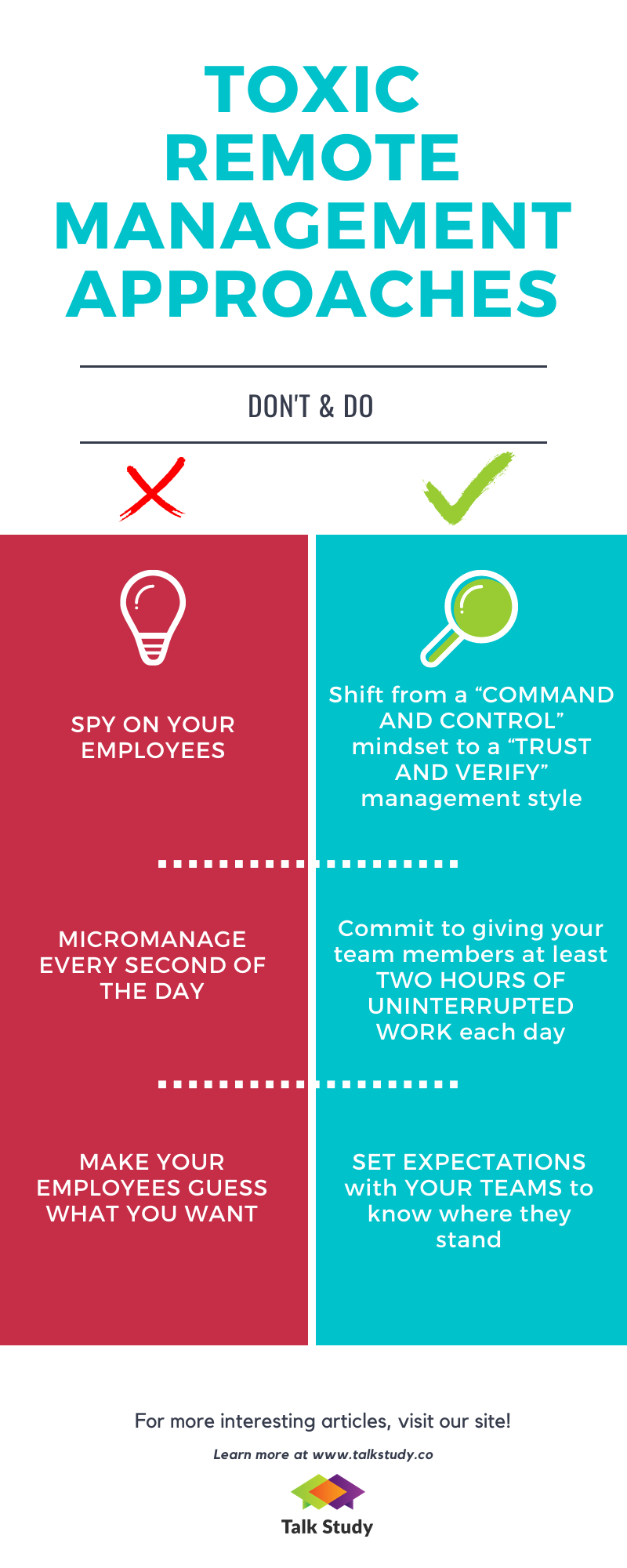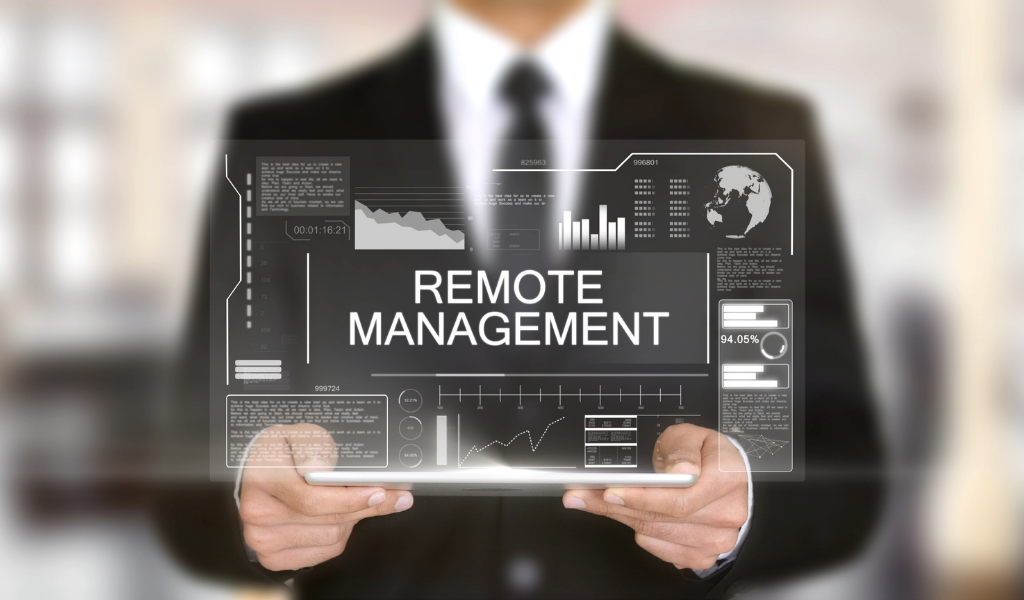If you can, think back to 2019, before COVID-19 changed everything. Imagine you are a manager running a customer support team of 50 agents. It’s December. The holiday rush has started and you have ambitious goals to meet. To make sure you stay on track, you demand extra status updates from your team, hold extra meetings to ensure people are aligned on goals, and drop in on your employees at their desks to make sure they are on task. This is a scenario that, in our former lives, passed as normal—but not in today’s remote world.
In the current work environment, if you want an engaged and high-achieving team, you have to avoid falling prey to damaging methods of remote management. It’s easy to get swept up in the stress of the moment and rely on quick fixes that will provide you temporary reassurance. However, these approaches are just that—temporary. The best remote managers are on high alert, always reflecting to ensure they aren’t veering into micromanager territory. In the long run, they will save themselves and their employees from burning out.
It’s more important than ever to avoid burnout; COVID-19 and remote work have created new levels of stress for employees. Fine-tuning remote work is still a daily challenge—after all, you are dealing with humans, not robots. Employee motivation and productivity are certainly important things to keep tabs on, but monitoring them every second of the day is not the answer.
What you should be focusing on is cultivating trust and instilling a sense of empowerment across your team—not spying or micromanaging. If you really want to increase productivity in a way that is sustainable, reject those impulses and shortcuts you’ve become accustomed to since remote work began.
Aim to pivot away from destructive remote management and toward a more efficient, enjoyable remote work environment.

DON’T: SPY ON YOUR EMPLOYEES.
That means don’t install surveillance software and tell no one. Or monitor employees’ mouse movements or screen time, or take screenshots—you name it. If you’re doing whatever it takes to keep a constant eye on your team 24/7, then you’re doing it wrong.
DO: SHIFT FROM A “COMMAND AND CONTROL” MINDSET TO A “TRUST AND VERIFY” MANAGEMENT STYLE.
Set clear, fair communication expectations and trust your team members until there is some reason not to. Learn to delegate and let go. Remove yourself from any processes where it’s not absolutely necessary for you to be there. Fostering a spirit of trust empowers your team and encourages them to do their best work.
DON’T: MICROMANAGE EVERY SECOND OF THE DAY.
In other words, don’t hound your employees on Slack, via email, or even over text. Don’t make them feel like you need to maintain constant contact throughout the day lest they be tempted to watch Netflix or take too many breaks.
DO: COMMIT TO GIVING YOUR TEAM MEMBERS AT LEAST TWO HOURS OF UNINTERRUPTED WORK EACH DAY.
Encourage going offline in order to focus. Tell them they are free to ignore notifications and get work done. Model this behavior yourself and set expectations that emails and messages, unless highly urgent, do not need to be responded to immediately.
DON’T: MAKE YOUR EMPLOYEES GUESS WHAT YOU WANT.
Don’t disregard expectation-setting. The line between minutia and critical tasks should be very clear. Don’t keep them guessing—both in terms of what you expect from them on a daily basis and what the long-term goals are for the company. There’s no benefit to creating as much mystery as possible surrounding how they can stay on track and keep their jobs.
DO: SET EXPECTATIONS WITH YOUR TEAMS TO KNOW WHERE THEY STAND.
Provide plenty of data and feedback so they know what they are doing and need to be focusing on. Keep your team informed and up to date on organizational matters and priorities on an established cadence. Maintaining transparency on key matters is the best way to get the most out of your people. Open, direct communication on a regular frequency will help everyone remain clear on where the company is heading and the plan to get there.
Adaptability is an important quality in any manager. This moment in particular, when millions of Americans are working from home, calls on all managers to consider what management practices will burn out their employees. Think critically. Be able to identify short-term solutions and avoid them. Pursue a sustainable approach that will empower your team long after this crisis is over.
Have you read?
- Five Reasons Working Abroad Will Make You A Stronger Leader
- Crack The Hidden Job Market
- 2020: New Virus, Old Challenges and Rebuilding a Better Asia-Pacific
Source Fast Company






Recent Comments